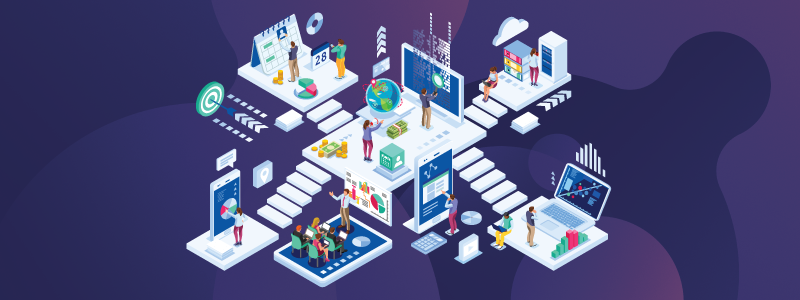ACT | The App Association testifies before House Judiciary Committee on “Online Platforms and Market Power, Part 2: Innovation and Entrepreneurship”
On Tuesday, July 16, 2019, ACT | The App Association President Morgan Reed testified in front of the House Judiciary Committee’s Subcommittee on Antitrust, Commercial, and Administrative Law as part of a series of hearings to inform the Committee’s inquiry into competition in digital markets amongst the tech giants of the United States: Google, Amazon, Facebook, and Apple (GAFA). As Congress investigates how these companies operate, it’s important to look back and see how they changed the app economy, specifically through the evolution of online platforms for software distribution.
Looking back to 2007, the only reliable way to buy software was to get the physical box containing the installation CD and operations manual for whatever business or gaming application you needed and hand over an average of $50 for the product. One year later, Apple launched its App Store, one of the world’s first software deployment platforms, revolutionizing the way that consumers and developers alike interface with their applications. Now, eleven years out, it’s worth looking into just how much its introduction shaped the app economy.
Before the ubiquity of platforms, the software ecosystem ran on limited personnel using personal computers to develop, market, and profit from the sale of their products. In other words, developers had to wear many hats, not only writing code but also managing public websites, hiring third parties to handle financial transactions, employing legal teams to protect their intellectual property (IP), and contracting with distributors to secure consumer trust in their product. This made it extremely hard for software companies to independently grow, as they had to rely on multiple different entities. On top of all that, companies had to worry about piracy and fraud, finding and shutting down pirated activation codes before they could be used, incurring fees in the process. All these responsibilities cost developers time and money, but they were necessary to gain the consumer trust that software companies need to successfully sell their products.
The launch of Apple’s App Store and similar platforms like the Google Android Market (now Google Play) revolutionized the way that consumers interfaced with software. Developers could now publish their vetted and tested applications on a trusted marketplace with a huge user base, inextricably linking mobile software with smartphones through the value of having apps on a phone and the convenience of having a smartphone for apps. Built into the platform were methods for developers to protect their IP and challenge those who threatened it, nearly instantaneous reach to a global market, and simplified and secure payment methods. The innovation of these platforms moved the rest of the world along the same path, making the software application ecosystem a neutral playing field and pushing innovation into the hands of consumers. In this way, the birth of platforms marked the birth of the app economy.
Apps no longer have to start from the ground up, fulfilling a service for consumers and creating a new market – they can just provide a unique gateway into an existing one. One of our members, a Silicon Valley-based venture capital firm, recently recounted that in the late ‘90s, a software company needed about $1 million to get up and running with wide distribution. Today, startups can be initially funded with less than $100,000 because of the advent of free or inexpensive cloud services, internet connectivity, and software tools. That relatively easy entry into the market helped produce some of the fastest growing and most valuable startups of the decade: sharing-economy services such as Uber or Airbnb, where consumers are given temporary access to someone else’s goods and services. Without the mobility and telecommunications service that smartphones provide, ride-sharing apps like Uber couldn’t function. Similarly, renting out your home to complete strangers through Airbnb without a traditional agreement would be unthinkable before the arrival of platforms.
Eleven years after the launch of Apple’s App Store, more than 20 million app developers around the globe drive an app economy worth about $1.3 trillion. As the app economy increases in size and scope daily, one can only wonder what the next fundamental change to the market will be and how regulators and policymakers will react. App Association member companies are the small businesses that power the mobile software ecosystem. Their voice is vitally important as policymakers decide how they will write this and future chapters of antitrust policy.
